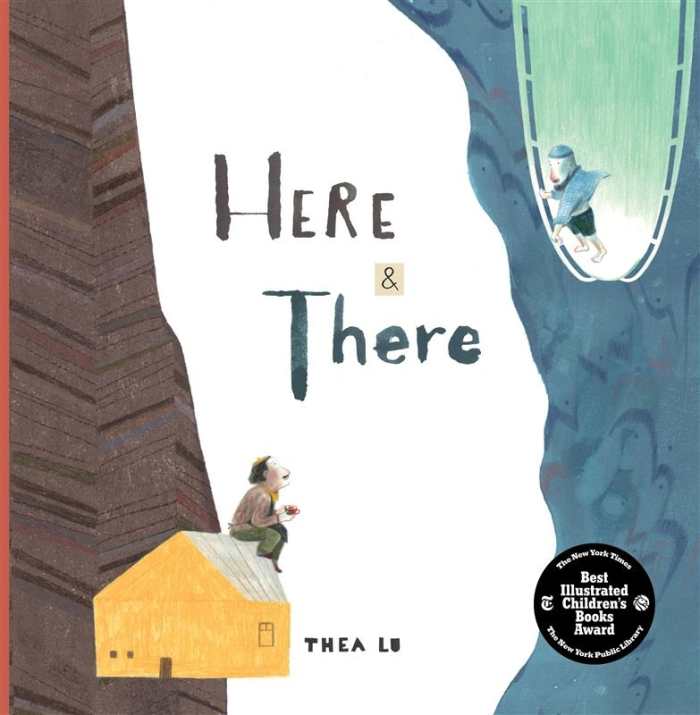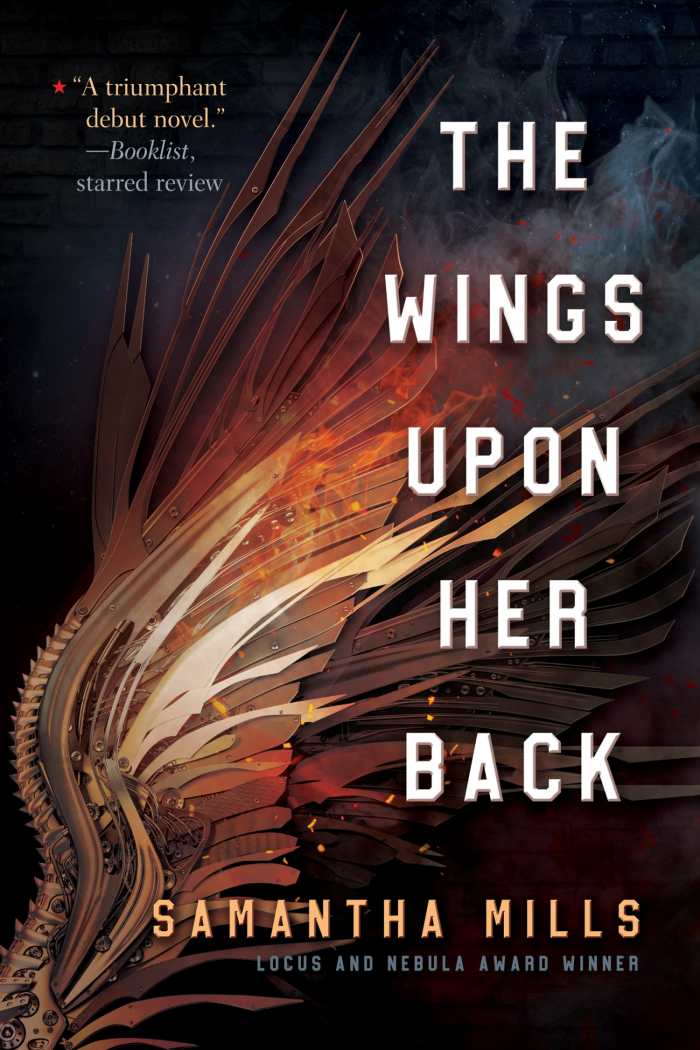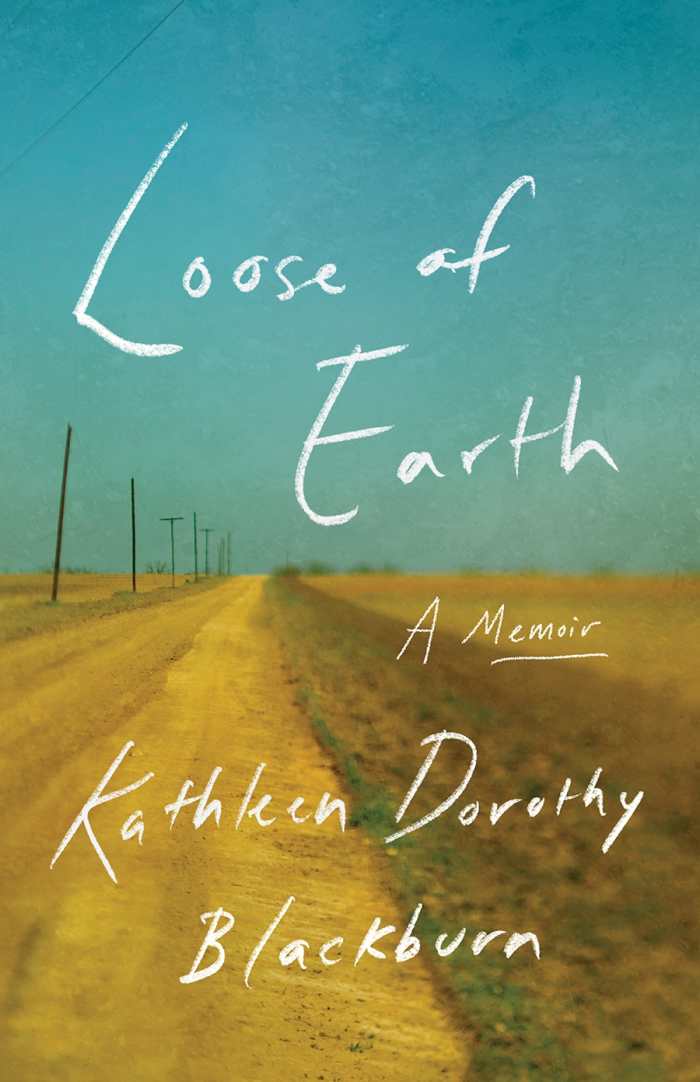It looks like you've stumbled upon a page meant to be read by our code instead of viewed directly. You're probably looking for this page.
Book of the Day Roundup: April 22-26, 2024
Here & There

Thea Lu
Eerdmans Books for Young Readers
Hardcover $19.99 (36pp)
978-0-8028-5623-4
Buy: Local Bookstore (Bookshop), Amazon
Contrasting color palettes depict parallel stories in this picturesque tale. Dan owns a café in a seaside town; he only travels through the stories of his customers. Aki is a sailor whose only home is the sea, but he finds companionship in the people he meets on his travels. Dan’s gifts from far-flung patrons are his only window to the world, and Aki’s only roots are photographs of the friends he has made, but they are both a part of the world—and a part of one another.
DANIELLE BALLANTYNE (February 13, 2024)
The Wings Upon Her Back

Samantha Mills
Tachyon Publications
Softcover $18.95 (336pp)
978-1-61696-414-6
Buy: Local Bookstore (Bookshop), Amazon
After a long career as a warrior, a determined woman questions her sacrifices and unwavering obedience to a charismatic leader in The Wings Upon Her Back, Samantha Mills’s thrilling fantasy debut.
Zenya’s community is organized into five sects, each serving a different god. Zenya’s parents are scholars—inquisitive, gentle people who are keepers of past wisdom. But Zenya dreams of becoming a winged warrior and runs away from home. Her rigorous training demands utter devotion to an alluring and fiery leader, Vodya. She braves painful surgeries to have mechanized wings implanted. Earning the title of Winged Zemolai, she turns away from her family and endures bruising tours of duty defending her community, sect, and leader.
The novel unfolds via two parallel storylines—Zenya as an eager teenager training to be a warrior, and her crisis of faith twenty-six years later when she is cast out from the warrior sect after showing mercy to an elderly worker. As an outcast, she joins with a group of rebels and begins to see Vodya in a new light—as an ambitious, dangerous autocrat. The intertwining threads culminate in an unforgettable ending whose battle parallels a pivotal battle fought years earlier when Zenya was a teenager in training.
The story raises riveting questions about the seductive influence of power, the roots of fascism, and the dangers of single-minded loyalty to a cause. It also portrays an accomplished woman grappling with questions of family, faith, and meaning: “Zemolai teetered on a precipice, and for the first time in her life she had no idea what waited below. So often, she had simply taken the leap.”
The Wings Upon Her Back is a masterful fantasy novel in which a powerful woman confronts the threats of fascism, zealous faith, and disillusionment.
KRISTEN RABE (February 13, 2024)
The Murmurs

Michael J. Malone
Orenda Books
Softcover $16.99 (276pp)
978-1-914585-82-1
Buy: Local Bookstore (Bookshop), Amazon
In Michael J. Malone’s supernatural thriller The Murmurs, a hidden family history in the Scottish Highlands carries a terrible cost.
A drowning and a suicide shatter the childhoods of Annie and her twin brother Lewis. Annie loses most of her memories. She becomes haunted by frightening premonitions of people’s deaths; she hears low, persistent voices and sees gory images of people’s faces. These “murmurs” pull her toward an ancestral past of violence and murder in the Scottish Highlands. Meanwhile, present-day dangers loom all around her.
Annie isolates herself as a way of avoiding the terrible futures she sees, and Lewis continues searching their family’s traumatic heritage for answers. The twins’ resistance to the supernatural murmurs braids with a parallel, shadow tale of women in the era of witch burnings and “the clearances,” when small crofters were evicted from their land by wealthier Scots. Shifts in time and in points of view help to maintain the suspense, as does the fact that each chapter ends with bits of enticing new information.
When Annie pauses her internal fight to control the murmurs, she begins to understand them as an entity within her, “long coiled, slowly relaxed. A serpent’s slide into wakefulness.” Such descriptions give shape to her emotions and recovered memories. She and others experience their own slow awakenings at a careful rate, lending a sense of inevitability and logic to the unspeakable acts uncovered in the book’s shocking conclusion.
An insightful literary thriller about generational trauma, The Murmurs places a contemporary series of murders in the context of Highland history and lore.
MICHELE SHARPE (February 13, 2024)
Loose of Earth

Kathleen Dorothy Blackburn
University of Texas Press
Hardcover $26.95 (216pp)
978-1-4773-2962-7
Buy: Local Bookstore (Bookshop), Amazon
About faith, family, and an informal investigation into carcinogenic toxins, Kathleen Dorothy Blackburn’s memoir Loose of Earth is wrenching.
Blackburn grew up in Texas surrounded by cotton fields. Her family was religious; their church was their second home. Her parents were Reagan-era born-again Christians whose home lessons reinforced their theology. Indeed, creationism and “God-planning” were on the curriculum instead of evolution or sex education, and corporal punishment was the norm. Evangelistic revivals reiterated that they should trust in supernatural healing.
Told in the present tense, the book recreates Blackburn’s childhood perspective alongside flashbacks into her parents’ and grandparents’ lives. Blackburn longed to be a veterinarian like her mother, who worked part-time and home-schooled her five children. Blackburn, the eldest, often babysat her siblings. Then, in 1998, her father, a pilot for American Airlines, was diagnosed with colon cancer; he died when he was thirty-nine.
Though cancer ran in the family, Blackburn later learned of another potential cause of her father’s illness. On this topic, the book weaves in research in a natural way, positing that toxins contained in the military-grade firefighting foam used at nearby Reese Air Force Base contaminated the groundwater and increased local cancer rates.
“I believe[d] Dad’s illness [was] a test of our faith, a suffering with purpose,” Blackburn writes. Her family followed a strict diet, cutting out sugar and processed foods and baking their own bread, leading to spiritual struggles over food and pain. When her father’s parents brought their dying son Oreos, for example, Blackburn’s mother wouldn’t allow him even one. And Blackburn expresses regret that codeine was withheld from him as a sign of faith in healing.
Loose of Earth is a poignant memoir—at once a family story and a bold exposé of the lasting effects of “forever chemicals.”
REBECCA FOSTER (February 13, 2024)
The God of Wild Places
Rediscovering the Divine in the Untamed Outdoors

Tony Jones
Rowman & Littlefield Publishers
Hardcover $24.00 (160pp)
978-1-5381-8444-8
Buy: Local Bookstore (Bookshop), Amazon
Tony Jones’s meditative memoir The God of Wild Places is about leaving the ministry but remaining alive to spirituality through outdoor adventures in Minnesota and further afield.
It was Jones’s childhood ambition to become a minister like his Welsh great-grandfather. Though he achieved his goal, his failing marriage and ailing faith drove him away. “I walked out of church and into the woods,” he declares: “As my religion … waned, my love of the wilderness … waxed.” A hunting trip in northern Minnesota cemented his love of the outdoors, while hiking, canoeing, fishing, and shooting became his new spiritual disciplines, bringing peace and encounters with the sublime—as well as with failure and mortality.
Jones takes inspiration from a range of gurus: Minnesota environmentalist Sigurd Olson is his hero, and Annie Dillard is among his favorite nature writers. He also references the Eastern Orthodox tradition, which prizes the idea of “theosis” or union with God, and the Desert Fathers of early Christianity, who found such union through experiences in the wilderness. Even when he got lost while hunting ducks one winter, he felt awe alongside fear. The book notes that nature can be cruel and cites Jones’s father’s death and his friend Jorge’s cancer as further reminders of mortality. “Hunting puts my own death right before me,” he admits.
“Vestments” function as a potent metaphor for Jones’s transformation: he once wore clerical robes but now dons chaps, camouflage, warm layers, and a hunting vest. The tenets of his “natural theology” include honoring place, opposing dualism, and embracing risk and death. Beloved dogs have been companions, and his relationships with his children and friends deepened on camping trips.
The God of Wild Places is a pensive, personalized primer to developing a nature-based theology.
REBECCA FOSTER (February 13, 2024)
Barbara Hodge